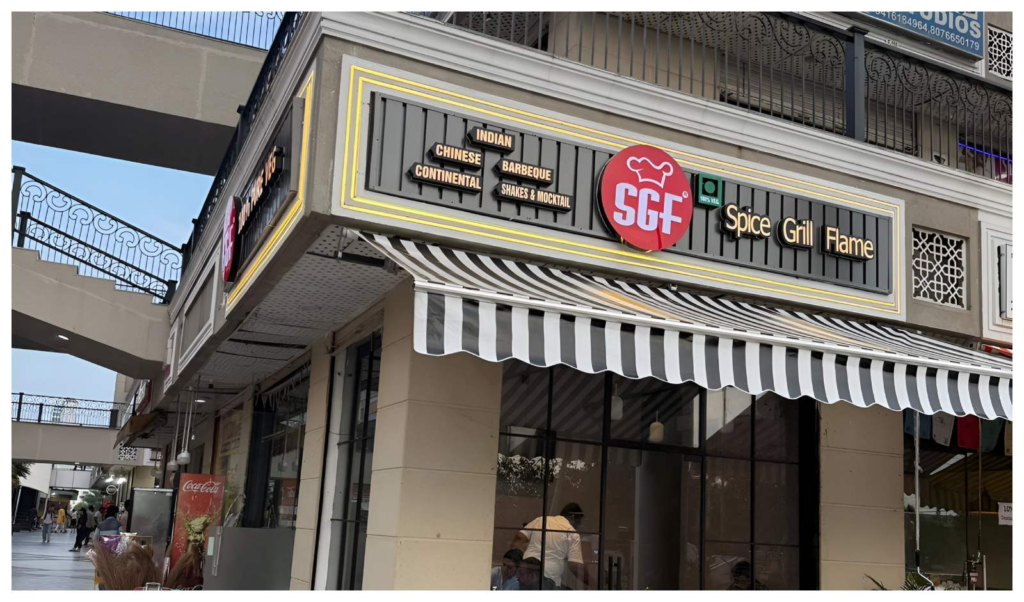Rising restaurant prices in the Gulf have sparked growing public concern in 2025. Once known for affordable luxury and accessible dining, the Gulf region is now witnessing a sharp spike in restaurant bills across cities like Dubai, Doha, Riyadh, and Manama. Residents, tourists, and food industry experts are beginning to express serious concerns about the long-term impact on lifestyle, tourism, and the economy.
Why Restaurant Prices Are Rising in the Gulf

Several factors are contributing to this increase in restaurant prices in the Gulf. The most common reason is the rising cost of ingredients, many of which are imported. Gulf nations rely heavily on international food suppliers, and with global inflation and shipping disruptions still affecting trade in 2025, these costs are being passed on to consumers.
Additionally, new taxation laws in countries like the UAE and Saudi Arabia are further driving up restaurant bills. Value-added tax (VAT), service charges, and increased licensing fees for food businesses have made operations more expensive. In turn, restaurant owners are adjusting their menus to protect their margins.
Rising rental rates for commercial spaces in popular food districts are also pushing prices upward. Restaurants in places like Jumeirah Beach, The Pearl in Qatar, and Riyadh’s Olaya district are facing increased overheads, making fine dining costlier than ever.
How Locals Are Reacting to Rising Restaurant Prices
The reaction from Gulf residents has been swift. Many have taken to social media to complain about the rising costs, using hashtags like #GulfFoodCrisis and #TooCostlyToDine. Locals, especially middle-income families, now find themselves cutting down on eating out or turning to more budget-friendly options like home-cooked meals and street food vendors.
Surveys conducted by local publications in early 2025 reveal that nearly 60% of Gulf residents feel that restaurant prices have become unaffordable. Younger audiences, particularly students and working professionals, are turning to apps that offer discounts, group deals, and coupons to make dining out manageable.
Some restaurants have responded to the criticism by introducing smaller portions or combo meals to keep prices from seeming too high. However, many diners feel that quality has dropped while prices have soared, leading to disappointment.
The Impact on Tourism and Dining Culture
The Gulf has long marketed itself as a luxury destination, especially for culinary tourism. Dubai’s global food festivals, Doha’s celebrity chef pop-ups, and Riyadh’s fine dining boom were all symbols of the region’s growing appeal.
But now, rising restaurant prices in the Gulf are starting to hurt tourism. Travel bloggers and food critics note that visitors are shocked at the high prices for even basic meals. In cities like Abu Dhabi or Muscat, a simple meal that used to cost 30 AED or SAR is now closer to 50 or 60 — an increase of almost 80%.
Many tourists, especially those on a budget, are opting to stay in hotels that offer free meals, or they are reducing their overall stay in the region. This shift is causing concern among local tourism boards, who fear a dip in culinary tourism growth.
Restaurant Owners Face Difficult Choices
For restaurant owners, the situation is equally challenging. While they understand the backlash, many argue that they have no choice. Operating costs in the Gulf have climbed in 2025, from staffing and logistics to packaging and maintenance.
Well-known restaurant chains are considering automation and AI-driven service to cut labor costs. Smaller outlets are being forced to relocate from prime city locations to more suburban areas. As a result, the diversity and availability of food options in city centers are shrinking.
Moreover, several small restaurants have already shut down in 2025 due to financial pressure, leading to job losses and further reducing competition. With fewer players in the market, prices may continue to rise unchecked.
Experts Warn of Broader Economic Effects
Economists warn that rising restaurant prices in the Gulf could have a domino effect. If fewer people eat out, ancillary businesses like food delivery services, catering firms, and cleaning companies could also suffer.
There is also concern that lifestyle changes caused by expensive dining could affect other sectors, such as real estate and retail. A report from a Dubai-based think tank suggests that the middle class in the Gulf may begin shifting spending habits away from lifestyle and entertainment, which could affect the region’s overall economic growth in the leisure sector.
In response to this, some Gulf governments are exploring subsidy models, food price monitoring, and support packages for small and medium restaurants. However, no firm policy changes have been implemented as of mid-2025.
Solutions Being Proposed

Industry experts are proposing various solutions to help tackle the issue of rising restaurant prices in the Gulf:
- Import Partnerships: Encouraging local agriculture and building stronger food trade deals with nearby countries to reduce dependency on long-haul imports.
- Tax Relief: Offering tax reductions for restaurants that keep their prices below a certain benchmark.
- Food Hubs: Developing affordable food zones or “culinary parks” where local vendors can serve budget-friendly meals.
- Digital Transparency: Launching government-approved apps that track restaurant pricing and help consumers make informed choices.
While these ideas sound promising, they will require coordination between the private sector and government authorities to make a meaningful difference.
The Road Ahead for Gulf Dining
Rising restaurant prices in the Gulf have turned what was once a celebrated luxury into a debated lifestyle choice. While the fine dining scene may still thrive among the wealthy and elite, the average consumer is feeling the pressure in 2025.
Unless proactive measures are taken, the long-term impact could go beyond restaurant bills — affecting tourism, business, employment, and even Gulf culture itself. The region must now decide whether to embrace reforms or risk making dining out a privilege only few can afford.
Also Read – Gulf Nations Lifestyle-Focused Cities to Launch by 2030



